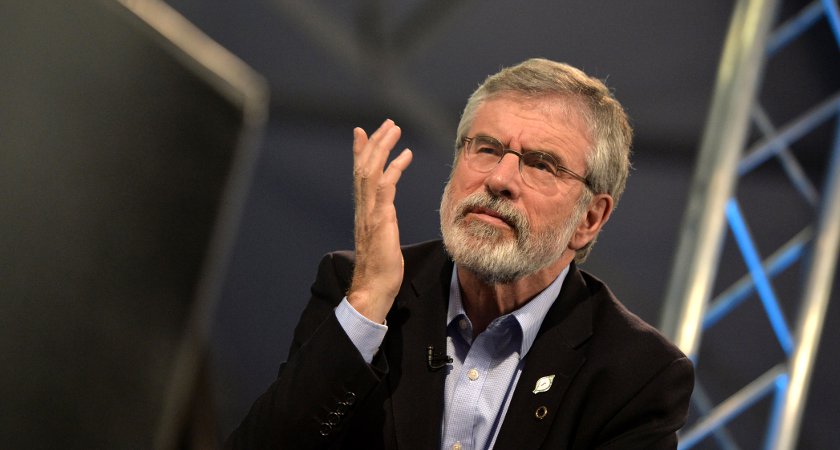THINGS in Stormont are at crisis point as crunch talks began today to reach a solution in the North of Ireland’s political turmoil.
The question of whether the Provisional IRA (PIRA) is still in existence has left the devolved government in tatters – with some unionist parties effectively going on strike.
The North of Ireland’s First Minister said yesterday that “business would not be as usual” in Stormont until the current crisis is resolved.
Secretary of State for Northern Ireland Theresa Villiers convened talks with the Republic’s Minister for Foreign Affairs and Trade Charlie Flanagan today in an effort to resolve the crisis.
The talks are expected to last between four and six weeks.
Here is what you need to know about the North of Ireland’s situation so far
1. There have been two murders which have sparked the controversy – those of former PIRA members Gerard ‘Jock’ Davison in May and Kevin McGuigan in August. Both were shot at close range.
2. A senior PSNI officer last month suggested that the murder of McGuigan was carried out as a “revenge killing” for his part in Davison’s death, prompting Chief Constable George Hamilton to issue a statement saying that there was no evidence to suggest this was the case.
3. In his statement, Mr Hamilton admitted that the PSNI believes the PIRA still exists but “not for paramilitary purposes”. The PIRA officially disbanded ten years ago and this was the first public acknowledgement that the organisation could still be in operation.
4. The PSNI continue to probe the potential existence of the PIRA and have had an offer of assistance from the government in the Republic.
 Sinn Féin leader Gerry Adams has denied claims that the PIRA are still active. Picture: Getty Images
Sinn Féin leader Gerry Adams has denied claims that the PIRA are still active. Picture: Getty Images5. The Irish Government and unionist parties in the North of Ireland all condemned the PIRA, with Ireland’s justice minister Frances Fitzgerald calling for a cross-border investigation into PIRA activity. Only Sinn Féin rubbished the claims that the PIRA still exists with Gerry Adams saying “the war is over.”
6. The cracks began to show in Stormont when the Ulster Unionist Party (UUP) said it would withdraw from the Northern Ireland Executive and set up an opposition government.
7. This was followed by the Democratic Unionist Party (DUP) refusing to take part in any government activities until the crisis has been resolved.
8. Now, representatives from the Irish and British governments will spend the next four to six weeks deliberating as they attempt to come up with a solution to the problem.

